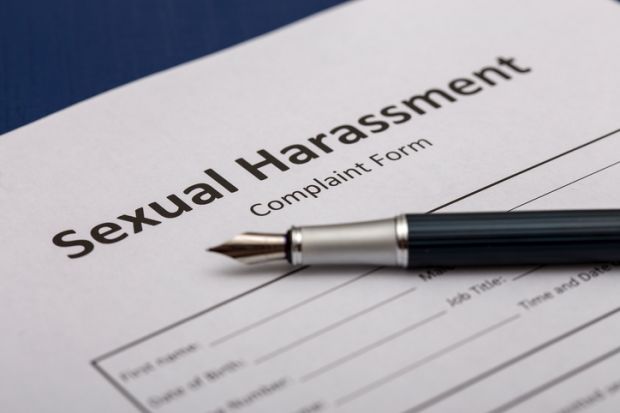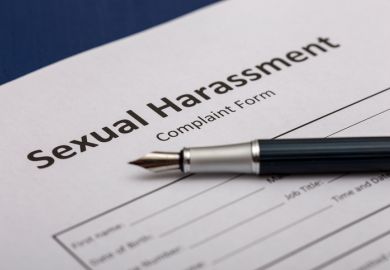With the arrival of the new academic year comes the need, perhaps more than ever before, for universities to ensure they have robust processes in place for dealing with complaints of sexual misconduct. The University of Surrey is the latest institution to hit the headlines for an incident and has reportedly taken a hard-line approach, banning 50 students from representing them for sports, expelling one student and giving warnings to others. The Universities of Warwick and Cambridge also recently found themselves adversely in the spotlight for how complaints have been handled – Warwick for the rape chat scandal and Cambridge for announcing it would not investigate some students’ complaints of sexual misconduct.
The #MeToo movement, the story of Chanel Miller – the woman who was sexually assaulted by Stanford student Brock Turner– and, closer to home, the story of Danielle Bradford who sued the University of Cambridge this year over its handling of her complaint, have all played their part in creating a culture of zero tolerance to sexual misconduct on campus, and an almost militant imperative for students to report their concerns around alleged sexual misconduct.
Yet how universities organise their response is still a patchy picture, as a recent BBC investigation found, and this creates legal and reputational risk for the institution as well as the sector.
Because there is no universally adopted disciplinary scheme in place within universities for the resolution of complaints of a sexual nature, the processes for the investigation and adjudication of complaints remain substantially at the discretion of the institution.
The closest “model” procedure comes from the Office of the Independent Adjudicator for Higher Education, in the guise of the disciplinary procedures section of the Good Practice Framework. Universities UK also published a report in 2016 with important recommendations as to how universities should be updating their processes and procedures, which along with its Guidance for Allegations of Student Misconduct comprise essential reading for higher education establishments.
These sets of guidance contain important recommendations for every stage of the process from complaint to appeal, for example proposing the inclusion of indicative penalties in university procedures so that students know the range of likely outcomes.
Yet given these are recommendations only and while university disciplinary decisions (and their processes) are open to scrutiny by the OIA, it is the High Court, by way of judicial review, where the ultimate decision would be made on whether a university has approached the investigation and subsequent decision making in the right way. This is clearly an expensive and high profile way to learn that your procedures are not fit for purpose.
What I regularly see is that universities do not have the skills or resources to undertake comprehensive investigations, and adjudicating panels are not necessarily legally qualified nor are they consistently or accurately applying legal tests when weighing evidence.
Often panels will proceed to decide the outcome of a case where no, or only a limited amount, of live evidence is called, denying the accused the ability to challenge the evidence of the complainant. I have seen countless examples of processes deployed where legal definitions and procedures were seriously lacking. In one recent case, concerning a reputable university, the accused student (charged with rape) was denied the opportunity to respond to an additional (“damning”) statement submitted on behalf of the alleged victim (which added depth and detail to her initial complaint), denying him the ability to let the panel know his side of the story.
Another common issue concerns the composition of the panel. Alongside professors and members of the board, it is not uncommon to find a student (from the same university) on the panel. It is easy to see why this could be wholly inappropriate.
In the corporate world, the advent of #MeToo has similarly shone a light on how some organisations have historically handled complaints and a new standard is slowly emerging. This typically involves instructing an independent specialist to investigate complaints and ensuring legal involvement in the adjudication process.
While not recommended by the current university guidance, the same simple steps will dramatically improve the prospect of universities properly balancing the interests of all parties in difficult cases.
Carry out an independent investigation. This could be with a lawyer, or indeed former police officers are exceptionally well placed to carry out this role. Invariably, the investigation of sexual allegations requires the complainant to give details of events that are personal, intimate, and possibly (re)traumatising. The interviewer must be highly skilled in taking evidence from complainants in such cases and fully conversant with criminal guidance on Achieving Best Evidence. Independence is critical so the investigator must have no knowledge of either of the parties or witnesses and should not hold any other role in the institution that might give rise to questions of independence.
Have legal involvement in the adjudication process. When a case gets to hearing stage in particular, it is of paramount importance that the process adopted is lawful and fair. An independent legal advisor, whose role is to advise on law and procedure, will ensure the adjudicating panel is made aware of all relevant considerations (and advised as to the irrelevant ones) when decision making. Unrepresented students can be guided through the process; advice dispensed on important concepts such as the standard and burden of proof; and questions put to witnesses can be recrafted if they are repetitive, vague, badgering or otherwise inappropriate.
Universities should, of course, focus on prevention and culture as well as adjudication. However, it is the latter where reputational implications are most prominent. Universities need to be fair to the complainant as well as the accused, whether it’s a student or a member of the teaching staff.
While everything must be done to encourage victims to speak out and feel confident their issue will be taken seriously, victim belief at the expense of proper investigation and an unbalanced adjudication process can have devastating consequences for careers and livelihoods. The Liam Allan story – in which the case of rape and sexual assault against him was dropped after a series of errors in the police’s handling of evidence – is as instructive as Danielle Bradford’s.
At a time when students will now hold their university to account for missed grades, so too will they take action for unfair sexual misconduct complaints handling. Universities fail to have robust procedures and processes in this area at their peril.
Julie Norris is a partner at Kingsley Napley LLP specialising in regulatory investigations
POSTSCRIPT:
- Would you like to write for Times Higher Education? Click here for more information.
Register to continue
Why register?
- Registration is free and only takes a moment
- Once registered, you can read 3 articles a month
- Sign up for our newsletter
Subscribe
Or subscribe for unlimited access to:
- Unlimited access to news, views, insights & reviews
- Digital editions
- Digital access to THE’s university and college rankings analysis
Already registered or a current subscriber?




